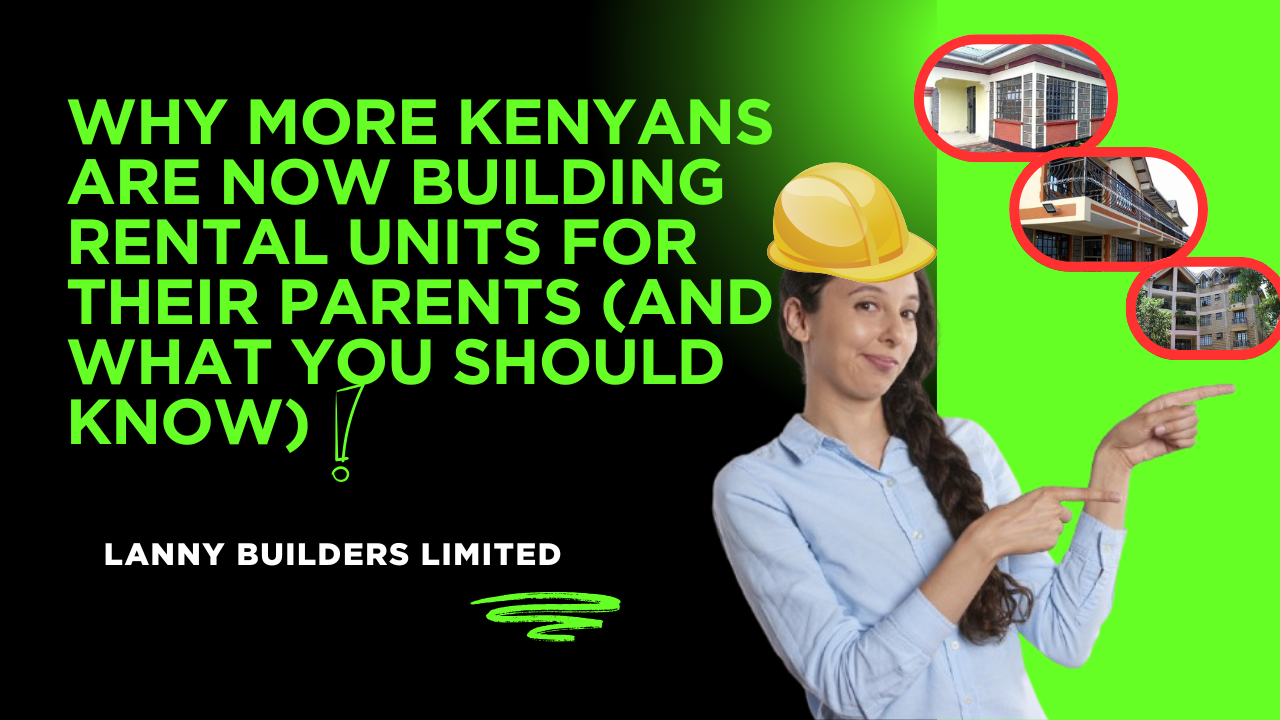In the past, most Kenyan families viewed it as a duty to host elderly parents within their main homes. But in 2025, a growing number of homeowners are taking a different approach: building self-contained rental-style units for their aging parents, either in their compound or as a wing of their property. This shift reflects changing urban lifestyles, health needs, and real estate awareness.
This trend is especially common in satellite towns like Kitengela, Kikuyu, Ngong, and Syokimau, where plot sizes allow for modest expansions.
Let’s explore the cultural, financial, and practical sides of this emerging housing movement.
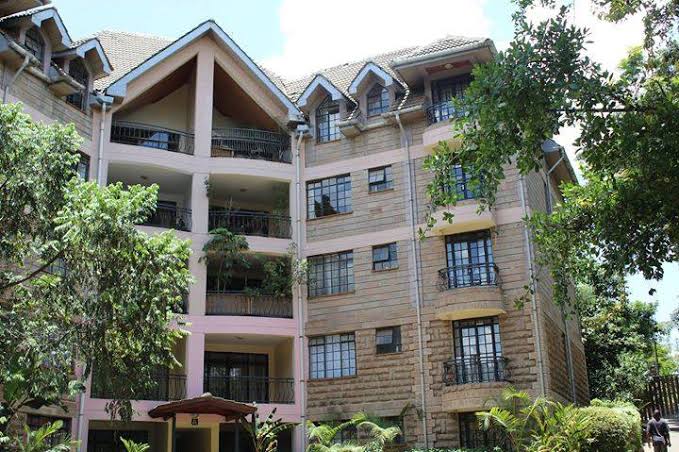
A Cultural Shift in Kenyan Families
Traditionally, multi-generational living meant a single house with everyone under one roof. However, today’s younger generation is balancing cultural obligations with personal space, work-from-home realities, and the unique needs of aging parents.
By building detached or semi-detached rental units for parents, families create:
- Independence for the elderly
- Privacy for both parties
- A future rental investment after the parent is no longer around
This approach respects both tradition and modernity.
Why This Makes Financial Sense
- Reduced caregiving costs
Paying for full-time caregiving in a retirement home or hospital can be prohibitively expensive. Having parents nearby makes supervision easier, reducing outsourcing needs. - Property value increase
Adding another unit increases the total value of the compound. This is especially valuable in Nairobi’s outskirts, where standalone rentals fetch good monthly returns. - Future-proofing
The unit can be repurposed in the future for adult children, Airbnb guests, or full-time tenants. - Shared utilities
Unlike building on a separate property, sharing power, water, and security between the main house and the parent’s unit minimizes operating costs.
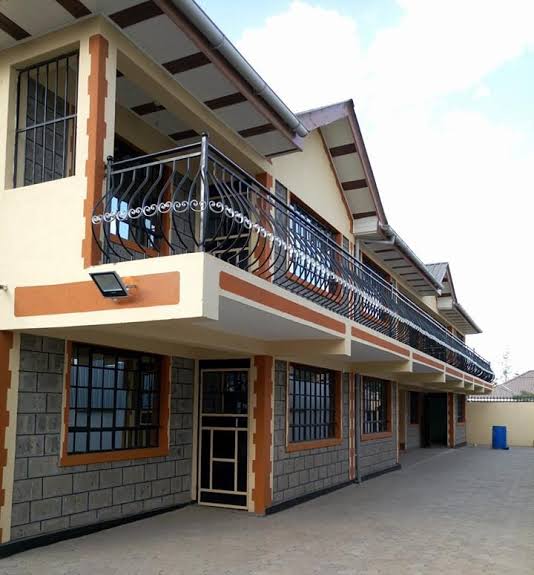
What the Ideal “Parent Rental Unit” Should Include
As age increases, so do physical limitations. A good unit must balance comfort, dignity, and safety.
Design must-haves:
- Ground-floor only (to avoid staircases)
- Wide doorways for wheelchair access
- Grab bars in bathrooms
- Non-slip floors
- Large windows for natural light
- Low-height switches and shelves
- Emergency call bell or intercom to the main house
- Private veranda or garden space
Optional features: solar backup, CCTV linked to your phone, or a motion sensor for unusual activity.
Legal and Inheritance Considerations
While building for your parents is noble, it’s important to structure ownership carefully. Questions to consider:
- Whose name is on the title?
If the parent funded the unit, should they co-own it? - What happens when the parent passes on?
Is it clearly documented that the structure reverts to the main property owner? - Does the parent have rights to lease it out or transfer use?
To avoid inheritance disputes, ensure clarity through written agreements and, where necessary, amendments to the will or family trust.
Consult a property lawyer for due diligence, especially if siblings are involved.
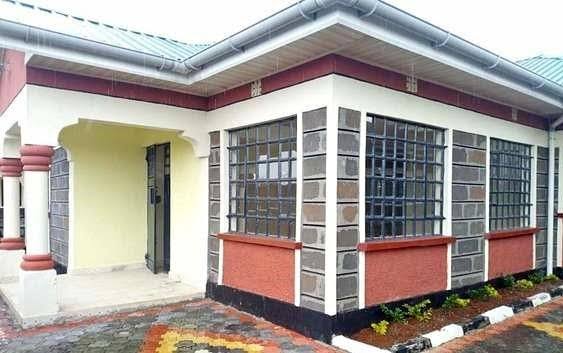
Real-Life Example: Jane in Syokimau
Jane, a 35-year-old tech worker, built a one-bedroom cottage in her backyard for her 67-year-old mother. It cost KES 850,000 to complete using EPS panels.
“My mum has her independence, and I know she’s nearby if anything happens. In future, I can convert it into a rental or office,” Jane says.
Emotional and Mental Health Benefits
- Dignity: Many older parents don’t want to feel like burdens. Their own space restores a sense of control and pride.
- Closeness without pressure: Family can spend time together without being constantly in each other’s space.
- Reduced loneliness: Especially for widowed or retired parents, proximity to grandchildren and daily activity boosts morale.
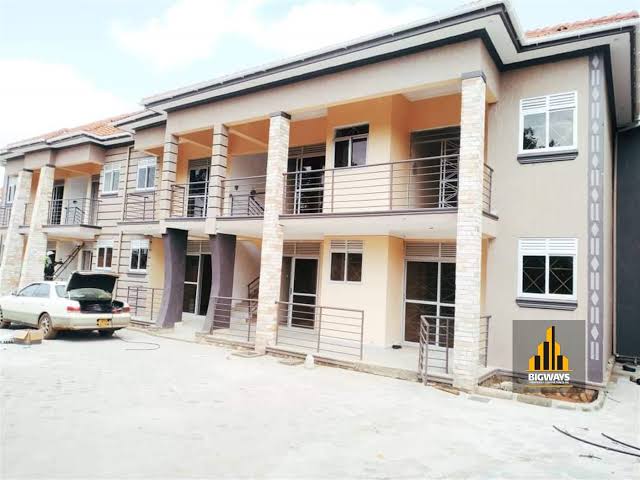
Pitfalls to Avoid
- Building without proper approvals
Even for family use, county permits are necessary for legal compliance and future resale. - Not discussing expectations
Will the parent pay for their utilities? Can they host guests? These should be clarified early. - Poor accessibility
Make sure the unit is future-ready — what works today might not work when mobility declines.
Conclusion
Kenyan families are redefining what it means to care for aging parents. By building rental-style units within the compound, they provide independence, security, and dignity — all while making a smart property investment.
It’s a blend of love and logic. And in today’s housing economy, it may be the most practical act of care one can offer.
